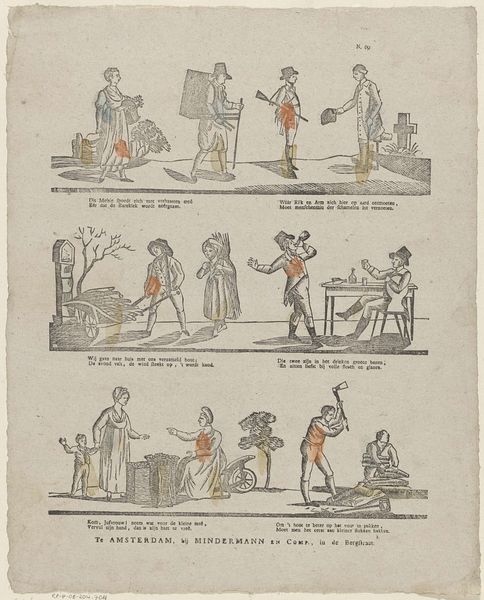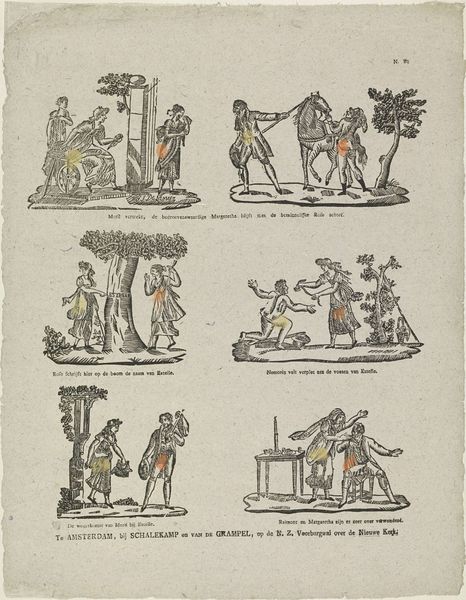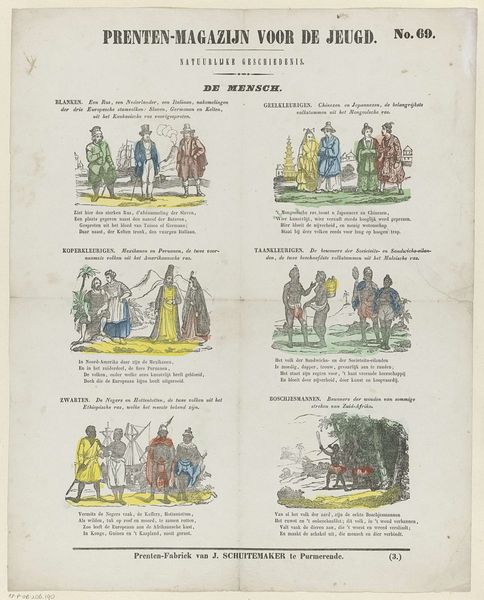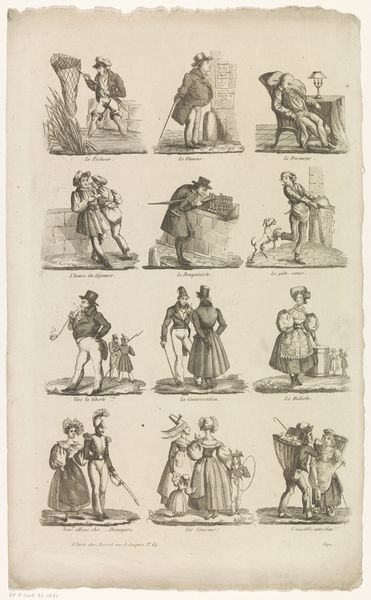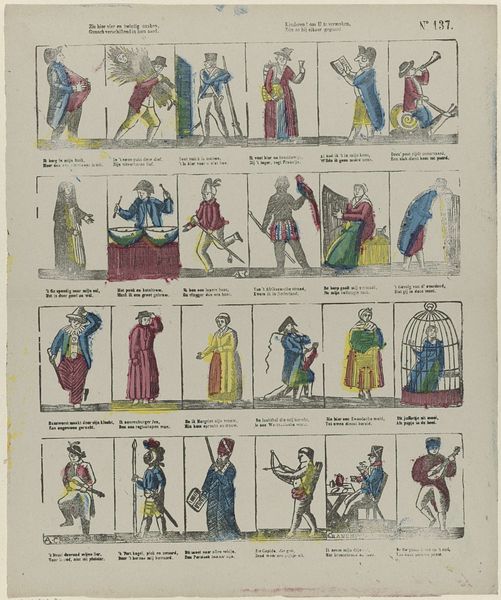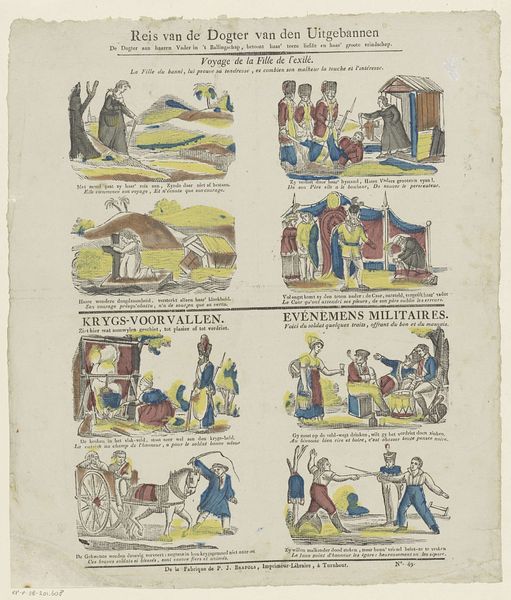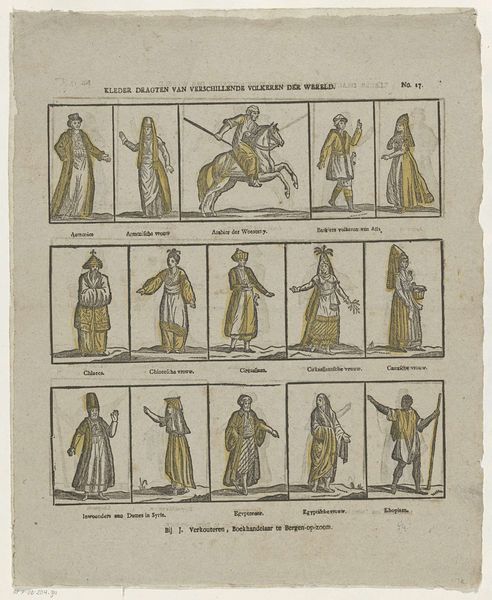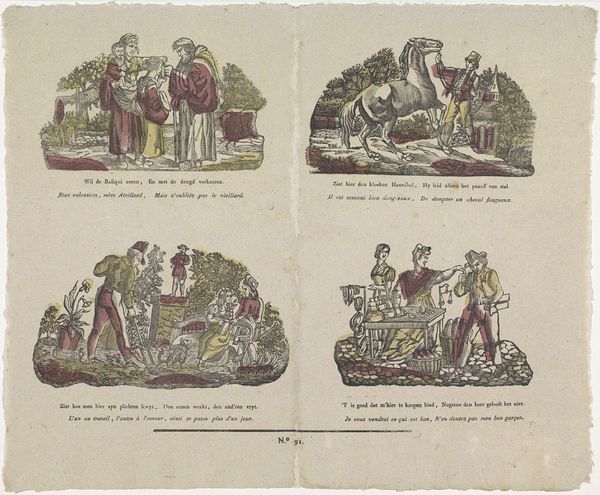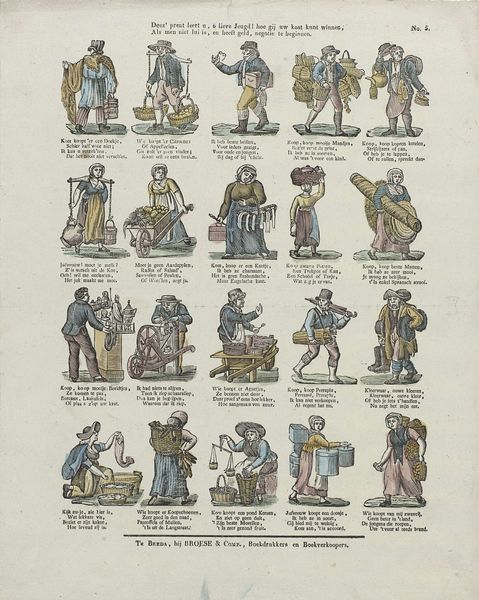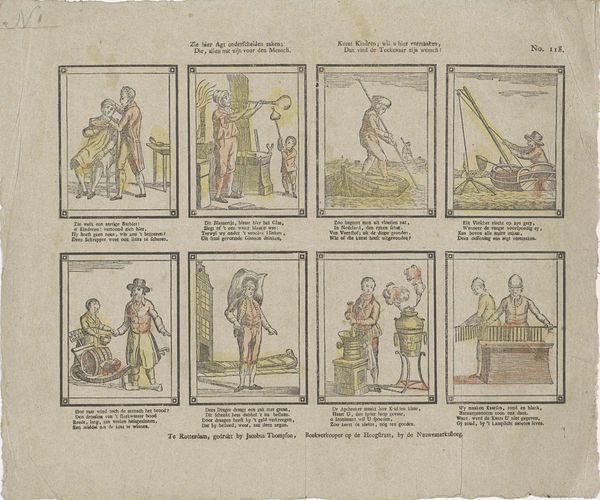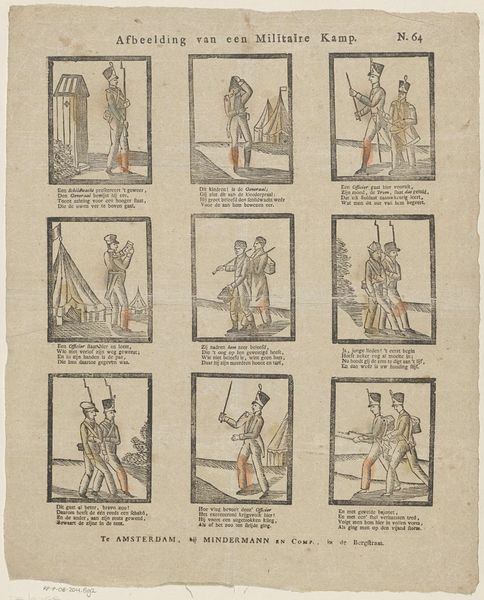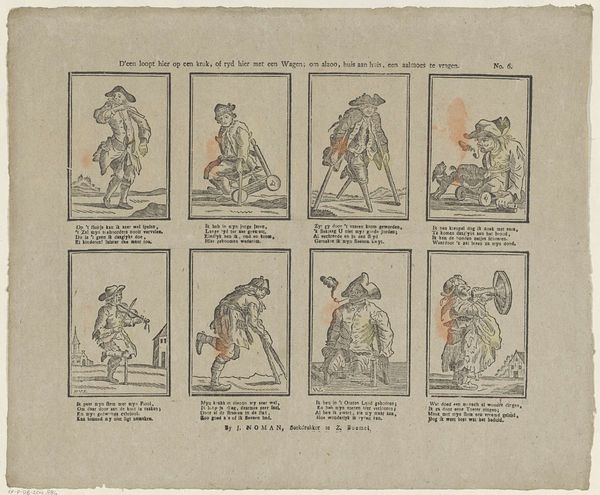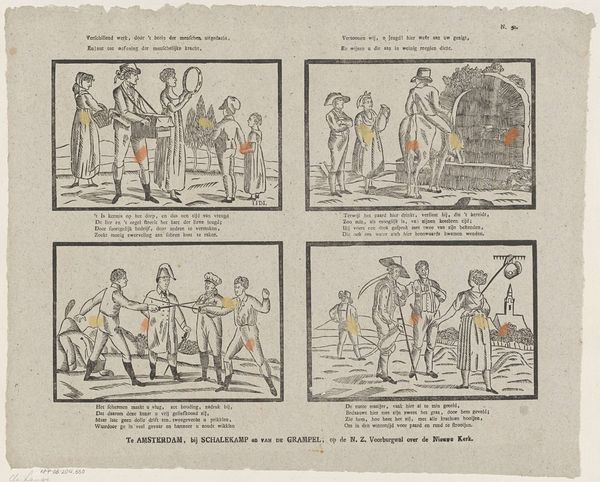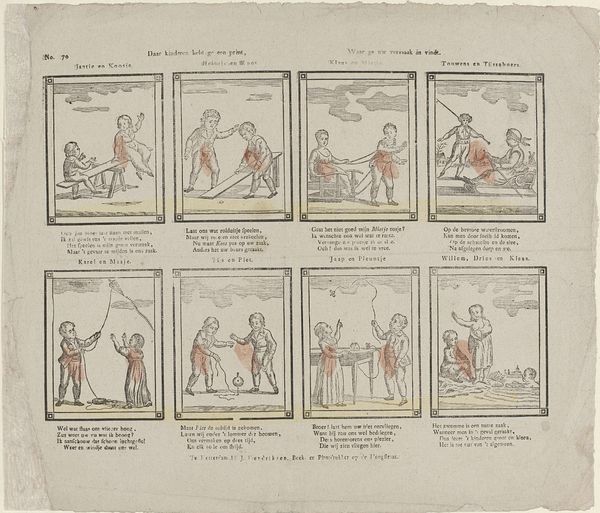
print, engraving
#
comic strip sketch
#
quirky sketch
#
narrative-art
# print
#
sketch book
#
landscape
#
figuration
#
personal sketchbook
#
idea generation sketch
#
sketchwork
#
ink drawing experimentation
#
comic
#
line
#
sketchbook drawing
#
genre-painting
#
history-painting
#
storyboard and sketchbook work
#
sketchbook art
#
engraving
Dimensions: height 411 mm, width 332 mm
Copyright: Rijks Museum: Open Domain
Curator: Immediately striking about this engraving, "Militairen" by Jan Hendrik de Lange, dating from 1787 to 1822 and housed here at the Rijksmuseum, is its cartoon-like presentation. A lighthearted rendering of soldiers in what appear to be vignettes from military life. Editor: Yes, a feeling of fragmented narratives definitely comes across. Each tier showcases soldiers engaged in various tasks—building camp, preparing food, and even comical interactions, almost like a proto-comic strip, each with its own textual tagline. Curator: De Lange, of course, worked as a book printer and seller, and one might suggest he sees war not as a glorious event but in terms of its impact on individuals through small dramas and daily labor. Editor: The piece underscores the experience of ordinary soldiers—how do their interactions defy traditional hierarchies? We are made to confront issues of class, power, and what constitutes service within this context. Curator: It also presents an intriguing challenge to our traditional understandings of artistic labor. Here, printing techniques and reproducibility facilitate the spread of narratives. One could consider this print’s place within a culture of print, and perhaps examine its cost, distribution, and intended audiences? Editor: The narratives shown, even while simply presented, provide an entry point for a more profound inquiry into identity and social function during a militarized era. Does each panel work independently to reveal small truths, or does the meaning arise more completely? Curator: Ultimately, "Militairen" provides not only aesthetic value, but invites considerations regarding its function in disseminating information and its impact on broader audiences within 18th- and 19th-century Dutch society. Editor: This piece offers a fascinating perspective on the social history of its time, suggesting much through the everyday experience of ordinary men doing extraordinary jobs—and at what price does it all come?
Comments
No comments
Be the first to comment and join the conversation on the ultimate creative platform.
